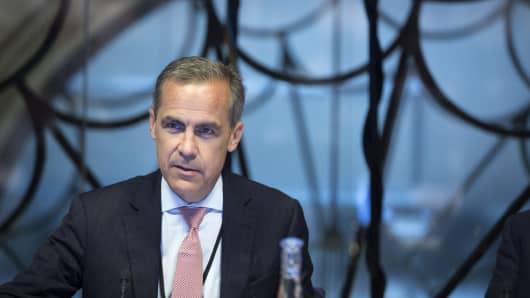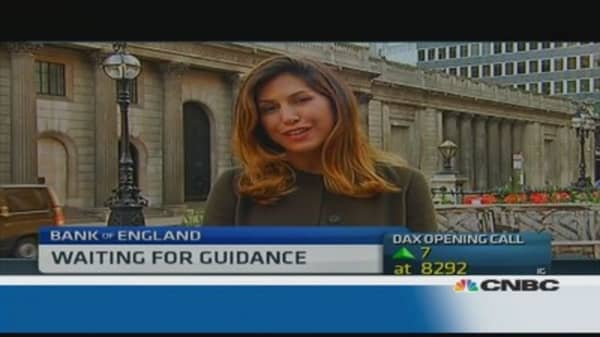Regarding the U.K.'s bubbling housing market, Carney said that lenders could raise capital requirements for mortgage lending to prevent overheating, as well as limit prospective house buyers' borrowing in line with their income.
A number of recent housing indexes have suggested that prices are approaching pre-crisis highs, with London showing a particular resurgence. Nationwide confirmed in August that an average home was now worth £170,825 ($260,098), the highest since June 2008 when the average was £172,415.
(Read more: Property boom may double homebuilder dividends)
Carney acknowledged the sudden rise in prices after the government launched measures to stimulate demand, and said the Bank might look at more intensive supervision of the mortgage lending market.
"We do need to be vigilant," he told policymakers.
'QE remains an option'
Market reaction to Carney's words was fairly muted. Interest rates actually fell lower during Carney's speech, while sterling rose to 1.588 against the dollar before falling back to $1.579.
Brenda Kelly, a market strategist at IG, said the lack of reaction was because U.K. asset prices had already made large moves on Wednesday in response to fresh jobs data. Official statistics showed that unemployment was moving closer to the Bank's 7 percent threshold for raising interest rates. Unemployment fell to 7.7 percent in the three months through July.
Traders said that the market remained, on the whole, unconvinced by the Bank's "forward guidance". The central bank forecasts that rates could stay low beyond late-2016, but the City of London looks to be pricing in a rates hike around late-2015.
"The general tone of the testimonies will have had little to dilute market expectations that the Bank of England will start to raise interest rates early in 2015, or even late-2014," Howard Archer, an economist at IHS Global Insight, said in research note.
Ishaq Siddiqi, a market strategist at ETX Capital, noted that quantitative easing remained an option. "Perhaps it will not be used unless the spike in UK 10-year gilts pose a threat to the recovery," he said in a research note.
—By CNBC.com's Matt Clinch. Follow him on Twitter @mattclinch81.





